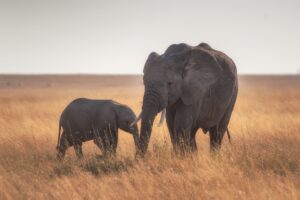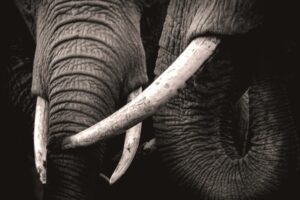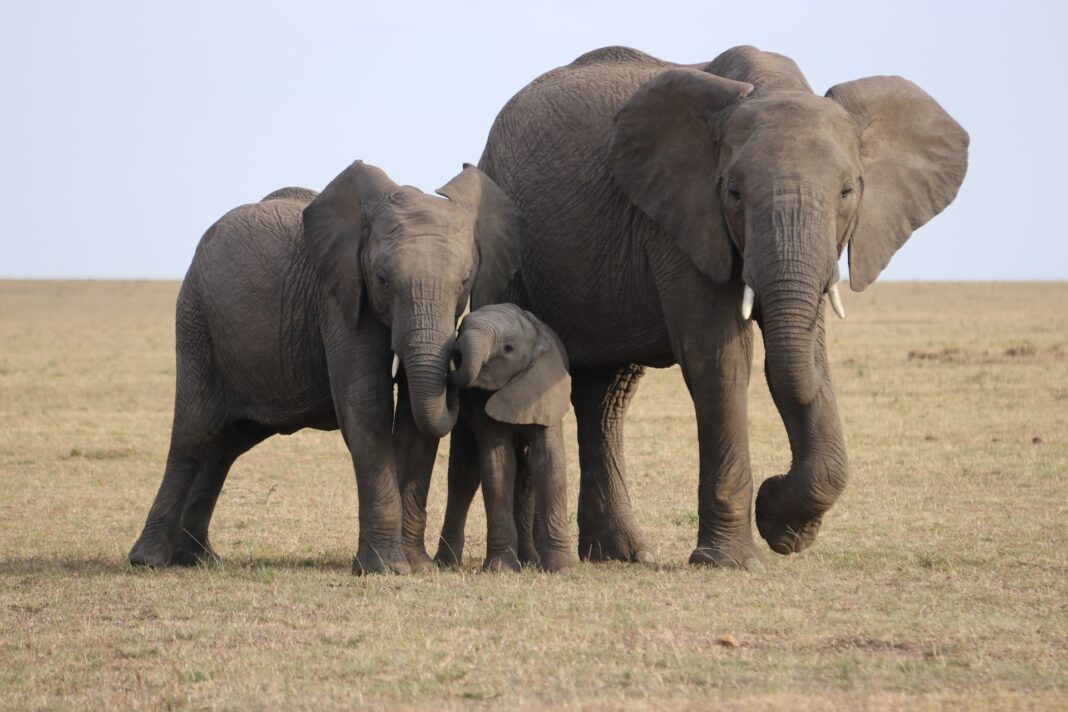The elephant: You’ve probably read about them in books or seen them in movies. They are the world’s largest land animals, and it is said that they never forget. Unfortunately, there are only 400,000 African Elephants remaining. If action is not taken, the African Elephant will be extinct by 2040! Asian elephants on the other hand, are even more scarce, with less than 40,000 remaining worldwide.
The Role of Elephants
Elephants play a big role in their environment. They are seed dispersers. When they eat plants and fruits, the seeds often emerge undigested. This helps plants spread. Because of their huge size, they make clearings in areas of the forest, letting new plants grow. Without them the environment they live in will suffer.
Elephants also have the largest brain of any land animal. Have you ever heard the saying “an elephant never forgets”? This refers to their amazing memory, empathy and delicate feelings. They even recognize and respond to the sadness of other elephants. They are one of the most intelligent animals on the planet! The loss of the elephant will be a loss to the environment, but it will also mean the loss of a remarkable species from which we have a lot to learn.

So what is happening to the elephants?
Even though there is an international ban on ivory trade, elephant poaching persists. The international ban was enforced when elephant poaching for ivory skyrocketed. In the 1980s, approximately 100,000 elephants were killed every year. The ban helped restore some of the population. Recently, there has been an upsurge in the demand for ivory, especially in Asian countries. Thousands of elephants are being killed for their ivory tusks, which are often used to make ornaments and jewelry.

Elephants are also losing their habitat. As the human population continues to grow, more and more of their land is taken away and used for agriculture. This is causing more contact and conflict between humans and elephants. Elephants may damage crops, and may even injure or kill people. They are often killed as a result. The Asian elephant suffers from habitat loss, living in one of the most densely populated locations in the world. According to worldelephantday.org, their habitats have been destroyed in order to build highways, and plantations of crops such as palm oil and rubber tree.
As well, a lot of baby Asian elephants are taken from their homes and sold in the tourism industry. These elephants are trained and used for entertainment in places such as circuses, where they receive poor veterinary care and inadequate living conditions.
Imagine having to tell future generations about an animal called an elephant that once existed. That’s what I first thought of when I learned about this issue.
If elephant poaching for ivory, habitat loss, and the use of elephants for entertainment continues, we might lose this amazing species forever.

